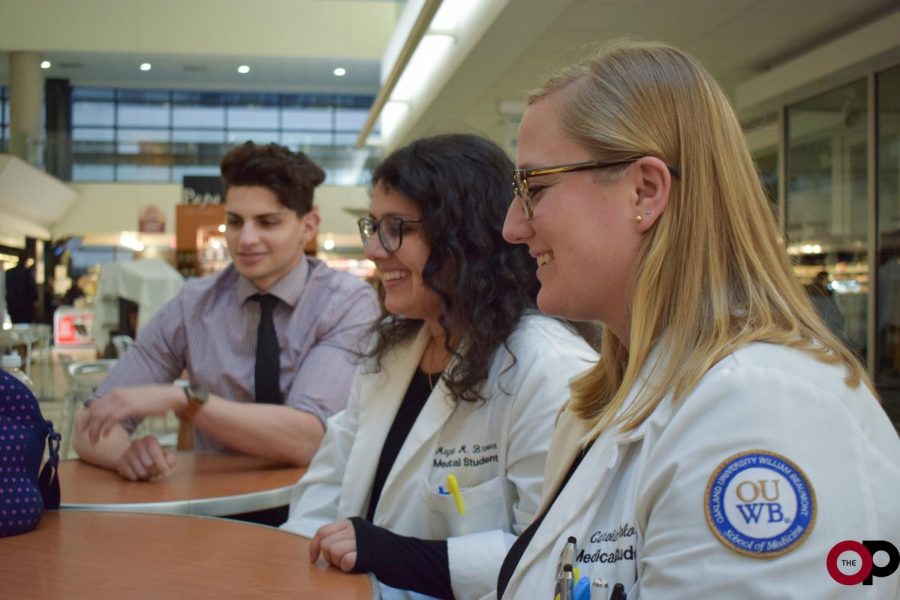OUWB keeps hospital patients connected to loved ones
Among the many words to describe COVID-19, “isolating” is surely among them.
Almost a year of quarantining has made agoraphobics of many people, and some longing so much for a return to normalcy that they will risk their lives to eat food in public.
Hospitals have also been subject to the isolating effects COVID-19 has on society. Most patients are no longer allowed to accept visitors, whether they are hospitalized with COVID-19 or any other ailment. Cut off from friends and loved ones, patients can find themselves physically isolated and left to navigate the medical system alone.
Work is being done to make sure this is not the case. Students from the Oakland University William Beaumont School of Medicine (OUWB) have been volunteering at Beaumont hospitals as communication liaisons, providing patients with a way to talk with loved ones.
“It becomes really isolating really quickly when you are only interacting with providers that are under a bunch of medical garb,” Alexandra Jankulov said. “The purpose of this volunteering is to provide an interface so that patients can have brief 15-minute video chats with their family members.”
Video calls between patients and loved ones are the big part of the liaison role. Volunteers work with family members to set up calls through the 8×8 app, which allows for the calls to be encrypted, and schedule a time for the patients to make their call.
“It is honestly so heartwarming to see the patients’ faces light up just from a simple video call,” Jankulov said. “It makes their experience in the hospital a little bit more bearable. We are eliminating this avoidable suffering [of isolation] to the best of our abilities.
With COVID-19 being around in the hospitals, there are measures taken to keep the volunteers safe. Students will help set up calls and hold the iPads for the patients when possible, but only official nurses are allowed to enter rooms of patients with COVID-like symptoms.
Video calls make up only a portion of the work communication liaison volunteers do.
“Aside from the … video calls, we also do ‘get to know me’ sheets where we basically talk to the patient or a family member about what things bring the patient comfort, what TV or music they like, any pets they have,” Tiffany Loh said.
The sheets allow for the medical staff to better know the patient, allowing them to have a personal connection with them. Liaisons also help patients with advanced directive instructions, allowing the patient to let staff know what they want done in case they are unable to make healthcare decisions while at the hospital.
Students are able to choose between Beaumont hospitals in Royal Oak, Troy and Grosse Pointe. Volunteers can choose between working 16 hours per week for four weeks, or eight hours a week for eight weeks.
The volunteer work has helped both patients and students. With COVID-19 changing the work dynamic for many people, volunteering has provided medical students with a unique way to get hands-on experience working at a hospital.
“One of the biggest things that I have been able to take away is the necessity of these different disciplines communicating,” Tyler Shubitowski said. “While I am learning as a physician and have things that I know I need to watch for, there are so many other working parts going on to help a patient to get better. This has really helped me to understand that those working parts exist and are ongoing and helped to better understand how to … integrate all those parts.”






